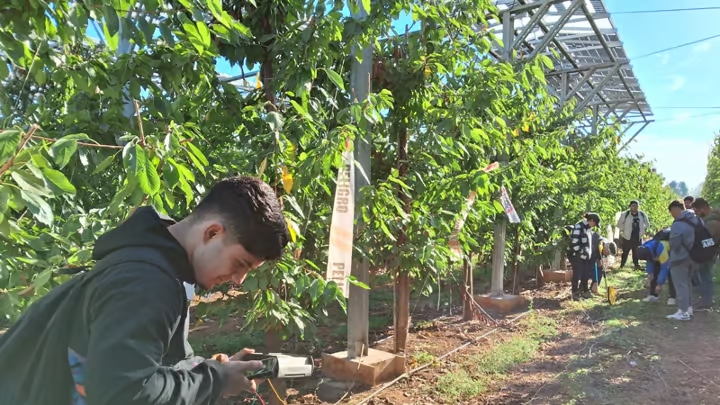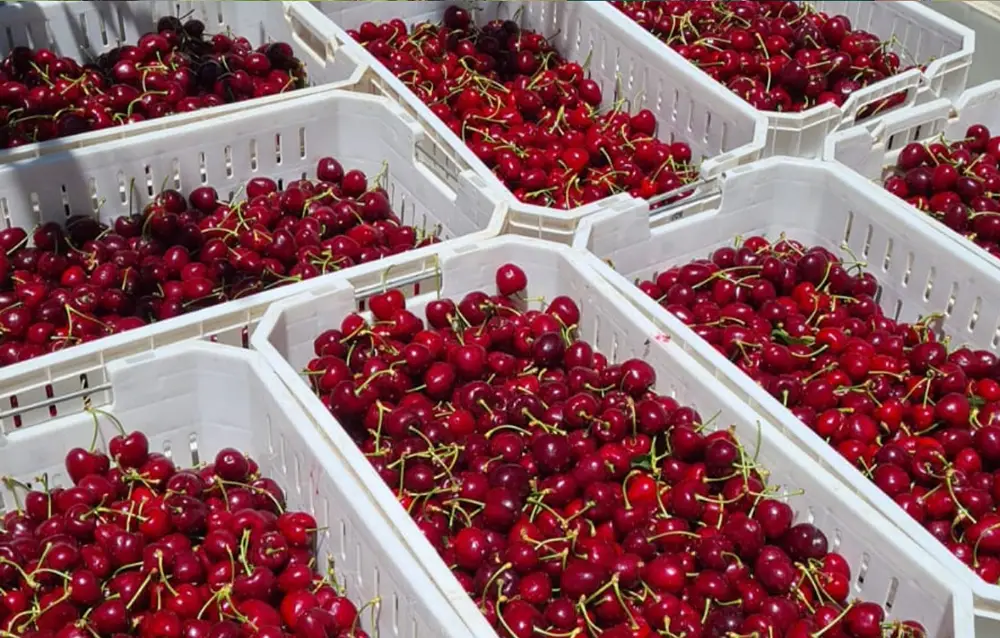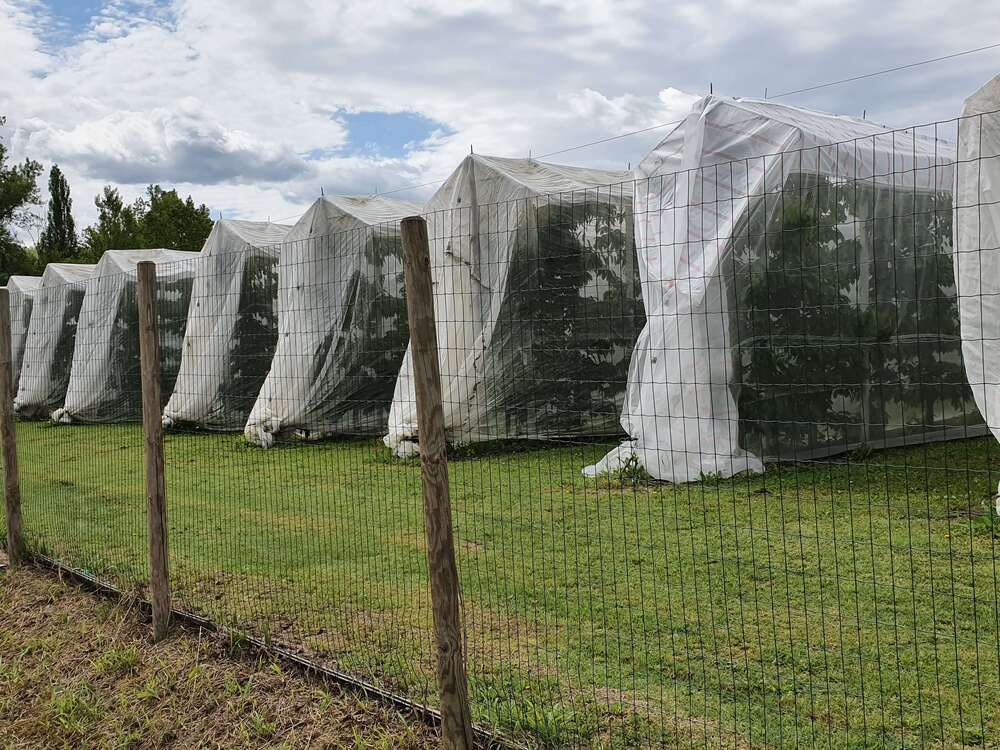The Adventist University of Chile (UnACh) is carrying out an innovative and sustainable project called the Agro-Photovoltaic System (AgroPv).
Led by the Faculty of Engineering and Commerce, this project has a dual purpose: to generate electric power using solar radiation and to develop orchards under photovoltaic panel structures.
The project, funded by the Innovation Fund for Competitiveness of the Regional Government of Ñuble, focuses on producing cherries and strawberries using semi-transparent solar panels. These panels allow light to pass through to the crops underneath. This technology aims to reduce production costs, improve sustainability, and increase quality and yield.
Shared Benefits
“This project aims to create a synergy between agricultural systems and photovoltaic systems,” says Victor Pizarro, project director. “The crop benefits because sunburn and excessive radiation are avoided; there’s also an increase in water efficiency. On the other hand, the panels also benefit, as the presence of a crop below creates a cooler environment, which helps the panels perform better.”
One of the main advantages is the use of solar energy for decarbonizing energy, which could lead to a 100% reduction in energy costs. Additionally, the facility helps protect agriculture, as the panels are placed at a height of 4.5 meters, shielding them from weather events such as frost, hail, sunlight, and heavy rain, significantly reducing fruit loss.

Unique in the World
The panels used in this project are made of semi-transparent glass, which helps reduce fruit contamination, making it a unique solution globally. Jorge Retamal, a fruit researcher at the Agricultural Research Institute (INIA)
Quilamapu, explains that the proposed canopy structure for cherries offers significant benefits. Unlike current plastic roofs, glass panels aim to minimize microplastic contamination in the fruits we consume, demonstrating a commitment to both health and the environment.
European Tour
Dr. Victor Pizarro, along with key representatives from the agricultural sector in the Ñuble region, participated in a technology tour of Europe, organized by UnACh. The tour allowed them to visit several pioneering agro-photovoltaic projects in fruit crops in Switzerland, Germany, and Spain to learn about the potential of applying these systems in the agricultural industry.
The development of this project has led UnACh to open its doors to other educational institutions and farmers in the region, so they can learn firsthand about the progress of this project and, through workshops, conferences, and seminars, educate and raise awareness among citizens about the benefits of integrating renewable energy, thus creating a link with the public and private sectors.
Source: Adventist News
Image: Adventist News
Cherry Times - All Rights Reserved











